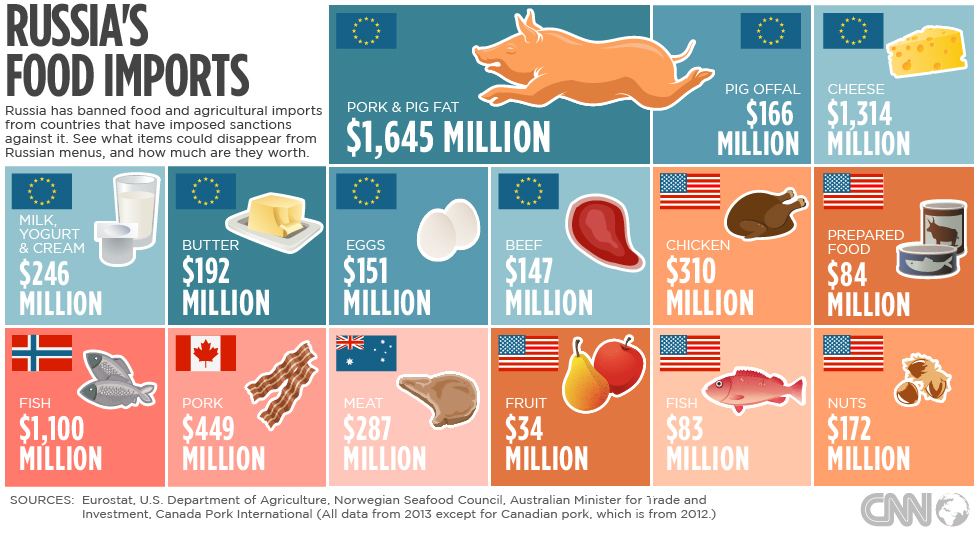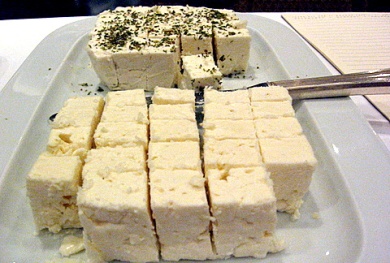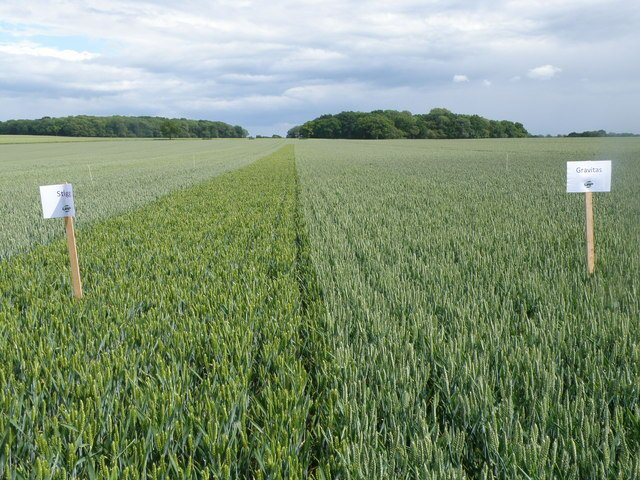Agriculture and Rural Development Commissioner-designate Phil Hogan was strongly confirmed following his hearing before the European Parliament COMAGRI yesterday by 32 votes to 10 on the question whether he is qualified to be a Commissioners, and by 31 votes to 11 on whether he is qualified to take responsibility for his portfolio.
There were no surprises in either Phil Hogan’s opening statement or in his answers to questions (the DG AGRI website has a copy of his opening statement and a video link to the hearing). I see no reason to revise my previous assessment of the priorities for agricultural policy under Hogan’s mandate.… Read the rest
Trends in EU agricultural self-sufficiency
Worries and concerns about food security, real or imagined, have figured prominently in the debate on EU agricultural policy since the Commission launched its consultation document on the recent CAP reform in 2010, stimulated by the price spike on global food markets in the years 2007-08. This week, at the informal Farm Council in Milan on Tuesday 30 September under the Italian Presidency, agricultural ministers will discuss how EU agriculture can contribute to the food security challenge.
One of the issues that constantly pops up in this debate is the importance of food self-sufficiency as a guarantor of food security. Food self-sufficiency is defined as the proportion of domestic consumption met from domestic production.… Read the rest
Prospects for the next CAP reform
The newly-elected MEPS are now finding their feet in Brussels and committee memberships have been assigned. Commission President Juncker has allocated portfolios to the Commissioners nominated by member states, and the European Parliament has scheduled its confirmation hearings beginning next Monday 29 September. The hearing for the Commissioner-designate for Agriculture and Rural Development, Phil Hogan, is scheduled for Thursday 2 October.
What will the new Commissioner and the new Parliament mean for future CAP reform? With the implementation of the Ciolos CAP reform not even begun, it might seem presumptuous to turn to thinking about the timetable and prospects for the next CAP reform.… Read the rest
Russian food sanctions against the EU
The Russian ban on the import of certain food products from the EU (and some other countries) has led to a chorus of appeals from member states and from farm groups for aid and compensation. The Russian ban has created an immediate problem in the fruit and vegetables sector, where the summer harvest for fruits is in full swing, there is a high dependence on the Russian market, and the produce is perishable with few immediate alternative outlets. But the overall scale of the problem needs to be kept in perspective. In this post, I present the data on the countries and products affected.… Read the rest
WTO failure on trade facilitation agreement puts question mark over Doha timeline
On Thursday this week, the WTO Director-General Robert Azevêdo admitted to failure in concluding the negotiations to adopt the Protocol of Amendment on the Trade Facilitation Agreement (TFA) by 31 July as had been agreed by Ministers at the WTO Ministerial Conference in Bali last December. The Protocol of Amendment was intended to start the process to formally insert the trade facilitation deal into the overall WTO Agreement.
The TFA was part of a carefully-balanced package at Bali designed to get substantive negotiations on the Doha Round again underway. In addition to a series of decisions and declarations on trade facilitation, agriculture, cotton, development and least developed country (LDC) issues, the Ministerial Conference had set a deadline of the end of 2014 for the Trade Negotiations Committee to develop a clearly-defined work programme on the remaining Doha Round issues.… Read the rest
The draft 2015 CAP budget
The annual budget is an important statement of any organisation’s strategic priorities. The EU budget is no exception, but its sheer size and complexity makes it difficult for the interested lay person to interpret and to understand.
The Commission proposed a draft budget (DB) for 2015 in June, and the figures are now under negotiation between the two legislative institutions. Since the Lisbon Treaty, the annual budget is agreed by co-decision between the Council and the Parliament, although the outcome must observe the ceilings agreed in the 2014-2020 multiannual financial framework (MFF).
Once the draft budget is proposed, the Council first adopts its position and forwards it to the European Parliament (EP).… Read the rest
Geographical indications (GIs) in the US-EU TTIP negotiations
The US Agriculture Secretary, Tom Vilsack, was in Brussels this week, among other things to have lunch with EU Agriculture Ministers during their monthly Council meeting. He also took the opportunity to have a discussion with Commissioner Ciolos on some of the agricultural issues that are proving difficult to resolve in the ongoing negotiations on the US-EU Transatlantic Trade and Investment Partnership (TTIP) free trade agreement.
One of these issues is the EU demand that the US should recognise and protect the EU’s list of geographical indications (GIs). Geographical Indications are defined in the WTO as “indications which identify a good as originating in the territory of a Member, or a region or locality in that territory, where a given quality, reputation or other characteristic of the good is essentially attributable to its geographical origin”.… Read the rest
Food safety in the US-EU TTIP negotiations
There is widespread concern that the ongoing negotiations on a transatlantic free trade area between the US and the EU, known as the Transatlantic Trade and Investment Partnership (TTIP), may result in a watering-down of EU food safety standards under US pressure to remove measures which are perceived as barriers to trade.
According to a report from the US-based NGO the Centre for Food Safety, “many analysts believe that a central aim of the negotiations is to dismantle many food safety regulations that corporations view as impediments to trade and profitmaking.”
Less dramatically, the European Consumer Organisation BEUC notes in its position paper that: “[…] the EU food legislative framework guarantees consumers a high level of protection and information.… Read the rest
The 2013 CAP reform and biodiversity
A recent paper in Science (unfortunately, behind a paywall unless you have access through a library or individual subscription) written by 21 authors from across Europe provides a very timely review of the impact of the recent CAP reform from the perspective how it addresses the EU’s biodiversity commitments. UPDATE There is a short summary by one of the authors here.
The EU’s overall objective in its Biodiversity Strategy for 2020 agreed in 2011 is to halt the loss of diversity and to restore degraded ecosystems. Specifically, Target 3A is to “maximise areas […] covered by biodiversity-related measures under the CAP”.… Read the rest
What is happening to EU agricultural productivity growth?
Agricultural growth can come about through bringing new resources into production (new land, extension of irrigation, or input intensification per hectare) or through raising the productivity of existing resources. The appropriate measure of productivity growth in this context is Total Factor Productivity (TFP) growth, which is defined as the aggregate quantity of outputs produced by the agricultural sector divided by the aggregate quantity of inputs used to produce those outputs.
This measure contrasts with partial productivity measures such as growth in labour productivity or land productivity (yields per hectare) because an increase in these partial productivity measures can be achieved by increasing the intensity of use of other inputs (for example, crop yields can be increased by applying greater amounts of fertiliser or using more labour).… Read the rest



